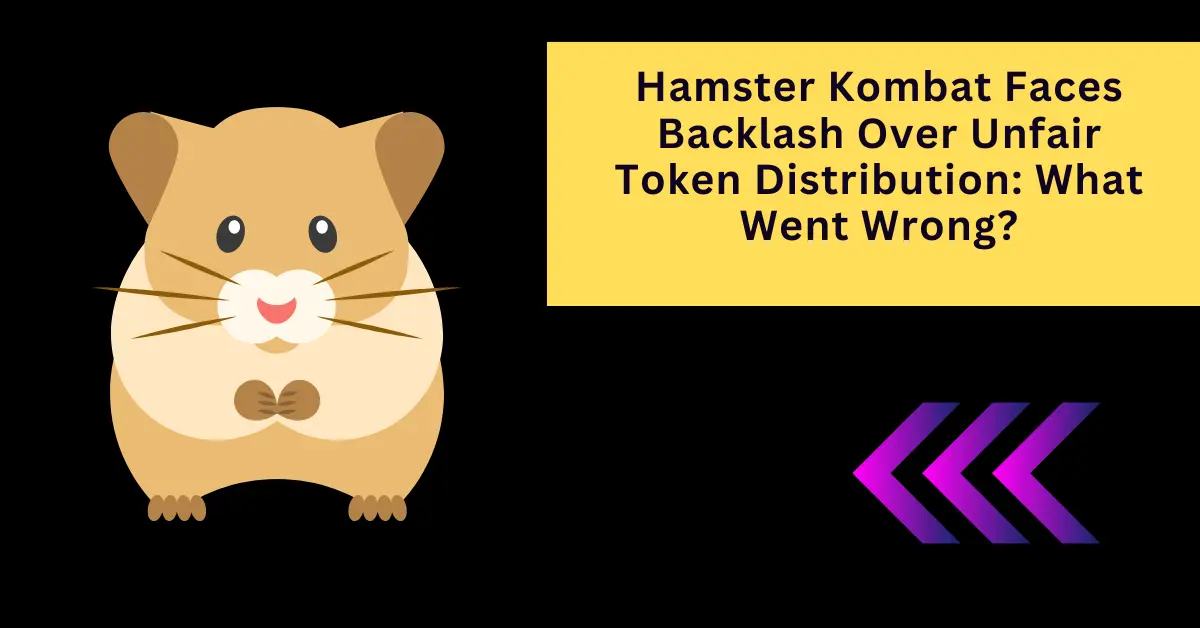Hamster Kombat, the popular play-to-earn crypto game, is facing intense criticism from its massive player base over its token distribution process.
Initially celebrated for its unique blend of gaming and cryptocurrency rewards, the game’s much-hyped $HMSTR token airdrop has now turned into a source of frustration for many players.
Here’s a breakdown of the situation and why some users are even boycotting the game.
The Hype Around Hamster Kombat
Hamster Kombat gained a huge following after launching in March 2024, attracting more than 300 million users within months.
Its appeal lies in its play-to-earn model, where players take on the role of a hamster CEO, manage virtual assets, and earn in-game cryptocurrency tokens called $HMSTR.
The game was especially popular on Telegram, becoming a sensation for crypto enthusiasts.
The excitement reached its peak when the game’s creators announced a major token generation event (TGE) and airdrop set for September 26, 2024.
A staggering 60% of the game’s total token supply was promised to the community in one of the largest airdrops in crypto history. However, things didn’t go as planned.

Token Distribution Leaves Players Disappointed
While the initial announcement of the airdrop excited players, the actual token allocation left many disappointed. Out of the 300 million users, only 131 million qualified for the airdrop, and even among them, the rewards fell far short of expectations.
Many players spent hours grinding in the game, only to receive minimal token rewards, with some players earning as little as $50 worth of $HMSTR after months of effort.
The price of $HMSTR fluctuating in pre-market trading—ranging between 0.01 USDT and 0.1 USDT—didn’t help.
Players found themselves holding far fewer valuable tokens than expected, despite the game’s massive user base and promises of large rewards.
One player, nicknamed Timbo, shared his frustration after playing 4-5 hours daily for two months, only to receive a small reward of 500 $HMSTR tokens.
This kind of story became common, with many players feeling like their time and effort were not adequately rewarded.
Accusations of Unfair Play and Cheating Bans
Adding fuel to the fire, Hamster Kombat banned 2.3 million players from the token distribution entirely, accusing them of cheating.
According to the game, players who used multiple devices, manipulated referrals, or bought in-game keys were disqualified.
However, many of the rules regarding cheating were unclear, and several players claim they were unfairly banned without warning.
Some players were banned for buying keys, an option available in the game, but only later deemed against the rules.
The controversial ban, paired with vague explanations, led to a trending hashtag, #boycotthamsterkombat, with over 22,000 mentions on X (formerly Twitter).
Players expressed frustration at the lack of communication and transparency from the game’s creators, further eroding trust in the game.
Did Hamster Kombat Mislead Its Players?
At the heart of the backlash is the feeling that Hamster Kombat misled its players. While the game attracted millions with promises of significant rewards, the reality of the token distribution has left many feeling cheated.
The focus on referrals over actual gameplay as the primary factor for receiving tokens also left many core players feeling sidelined in favour of influencers with larger social networks.
Despite the backlash, the game is expected to proceed with its token launch and airdrop. However, the long-term impact of this controversy on its player base remains uncertain.
Conclusion
What was supposed to be one of the largest and most exciting crypto airdrops in history has now become a cautionary tale.
Hamster Kombat’s token distribution has sparked widespread dissatisfaction, with many players questioning the fairness of the process.
Moving forward, the game’s success may depend on how well its creators address the community’s concerns and rebuild trust. Otherwise, Hamster Kombat risks losing the very players who helped build its hype in the first place.

